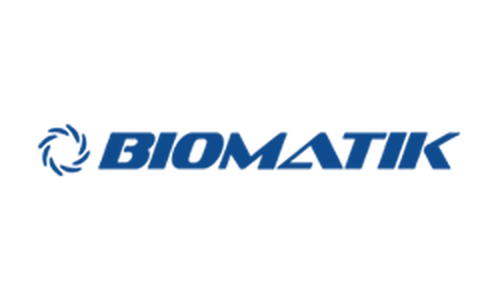Product Description
Recombinant Human Atypical chemokine receptor 2 (ACKR2) (Active) is available at Gentaur for Next week Delivery.
Gene Name: ACKR2
Alternative Names : C-C chemokine receptor D6 Chemokine receptor CCR-10 Chemokine receptor CCR-9 Chemokine-binding protein 2 Chemokine-binding protein D6 CCBP2, CCR10, CMKBR9, D6
Expression Region : 1-384aa
AA Sequence : MAATASPQPLATEDADSENSSFYYYDYLDEVAFMLCRKDAVVSFGKVFLPVFYSLIFVLGLSGNLLLLMVLLRYVPRRRMVEIYLLNLAISNLLFLVTLPFWGISVAWHWVFGSFLCKMVSTLYTINFYSGIFFISCMSLDKYLEIVHAQPYHRLRTRAKSLLLATIVWAVSLAVSIPDMVFVQTHENPKGVWNCHADFGGHGTIWKLFLRFQQNLLGFLLPLLAMIFFYSRIGCVLVRLRPAGQGRALKIAAALVVAFFVLWFPYNLTLFLHTLLDLQVFGNCEVSQHLDYALQVTESIAFLHCCFSPILYAFSSHRFRQYLKAFLAAVLGWHLAPGTAQASLSSCSESSILTAQEEMTGMNDLGERQSENYPNKEDVGNKSA
Sequence Info : Full Length
Tag Info : N-terminal 10xHis-tagged
Theoretical MW : 46.9 kDa
Storage Buffer : If the delivery form is liquid, the default storage buffer is Tris/PBS-based buffer, 5%-50% glycerol. If the delivery form is lyophilized powder, the buffer before lyophilization is Tris/PBS-based buffer, 6% Trehalose, pH 8.0.
Endotoxin Level : Not tested-
Biological Activity : Measured by its binding ability in a functional ELISA. Immobilized ACKR2 at 1 ?g/ml can bind human CCL2, the EC50 of human CCL2 protein is 23.52-30.99 ?g/ml.
Storage : Short term: -20°C; Long term: -80°C. Minimize freeze and thaw cycles.
Research Area : Immunology
Restriction : For Research Use Only. Not for use in diagnostic procedures, drug use, or for administration to humans or animals.
Relevance : Atypical chemokine receptor that controls chemokine levels and localization via high-affinity chemokine binding that is uncoupled from classic ligand-driven signal transduction cascades, resulting instead in chemokine sequestration, degradation, or transcytosis. Also known as interceptor (internalizing receptor) or chemokine-scavenging receptor or chemokine decoy receptor. Acts as a receptor for chemokines including CCL2, CCL3, CCL3L1, CCL4, CCL5, CCL7, CCL8, CCL11, CCL13, CCL17, CCL22, CCL23, CCL24, SCYA2/MCP-1, SCY3/MIP-1-alpha, SCYA5/RANTES and SCYA7/MCP-3. Upon active ligand stimulation, activates a beta-arrestin 1 (ARRB1)-dependent, G protein-independent signaling pathway that results in the phosphorylation of the actin-binding protein cofilin (CFL1) through a RAC1-PAK1-LIMK1 signaling pathway. Activation of this pathway results in up-regulation of ACKR2 from endosomal compartment to cell membrane, increasing its efficiency in chemokine uptake and degradation. By scavenging chemokines in tissues, on the surfaces of lymphatic vessels, and in placenta, plays an essential role in the resolution (termination) of the inflammatory response and in the regulation of adaptive immune responses. Plays a major role in the immune silencing of macrophages during the resolution of inflammation. Acts as a regulator of inflammatory leukocyte interactions with lymphatic endothelial cells (LECs) and is required for immature/mature dendritic cells discrimination by LECs.
Function :
Involvement in disease :
Subcellular location :
Protein Families :
Tissue Specificity :
Paythway :
Uniprot ID : O00590
 Euro
Euro
 British Pound
British Pound
 US Dollar
US Dollar








